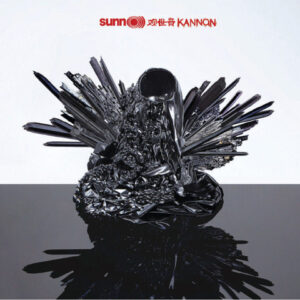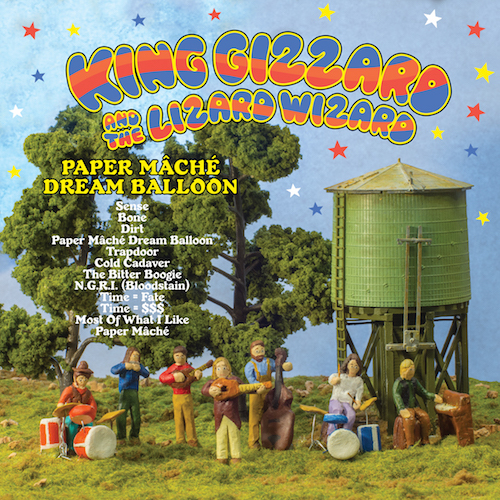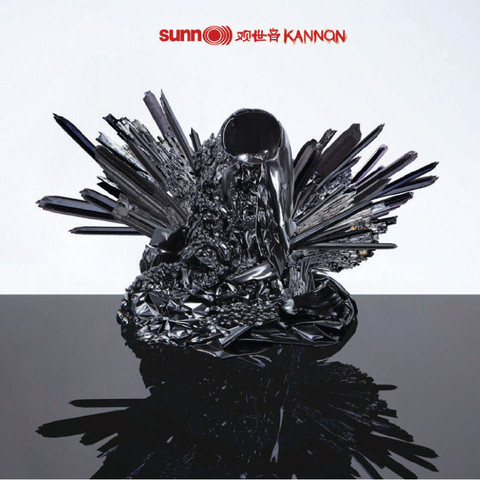This garage-psych band from the land down under sure does freak me out. Expecting more of the ragingly unkempt sonic shout-outs that shone like a veritable watermark on some of their earlier work (notably 2014’s Oddments and this year’s Quarters!) I was surprised by what amounts to self-restraint on their seventh full length effort, Paper Mâché Dream Balloon. Focused on a more acoustic expression of the band’s hook-conscious psychedelia, the new record never feels overwrought or rushed as it cascades through slow-mo grooves like opener “Sense” and dreamy, Lennon-influenced pieces like “Most of What I Like.” It’s surprising but ultimately rewarding that frontman Stu Mackenzie and company have evolved into a format that, while still unwilling to dispense with whimsy, embraces serious concerns about instrumentation and intent with a nonchalant aplomb that beckons listeners further and further into their color-drenched world.
Sunn O))) Kannon (Southern Lord Records)
Turn this up, find a comfortable place to sit (or elsewise an uncomfortable place to sit), close your eyes and don’t blame me if you fall into a trance that will perplex your roommates and bring you, the listener, one step closer to an encounter with the vast and divine nothingness of the universe. Serio, the three tracks that comprise the 35 minutes of Kannon will have a profound effect. The work itself is a testament to the power of postmodernism in music; the whole thing—accompanying graphics, a sculpture built for the cover, liner notes—comes off as a singular expression that hews itself out of critical theory and into the realm of musical experience. By turns difficult, searching, plodding and completist in its search for meaning and order in the chaos that abounds in the universe, Kannon delivers droning sonic moments that are as complexly ephemeral as the world the album seeks to symbolize.
Coldplay A Head Full of Dreams (Parlophone and Atlantic Records)
I don’t give a good goddamn if Chris Martin re-discovered his Joie de vivre while recording the new Coldplay album. As far as I’m concerned he should have called the whole lot A Head Full of Unfinished Radiohead Songs and been done with it. Martin and his gang of wanna-be brit-pop purveyors ought to truncate their catalog at A Rush of Blood to the Head. In lieu of that—a sacrifice that will probably never happen due to Martin’s pride of product and propensity for larger-than-life self-reflection—the band ought to stop listening to so damned much U2. With one passably entertaining track to chose from (“Hymn for the Weekend”) the rest of the album is not so much filler as it is unintentionally telling homage. Martin can’t seem to find his own voice and the rest of the band is just fine playing along with his simulacra.






